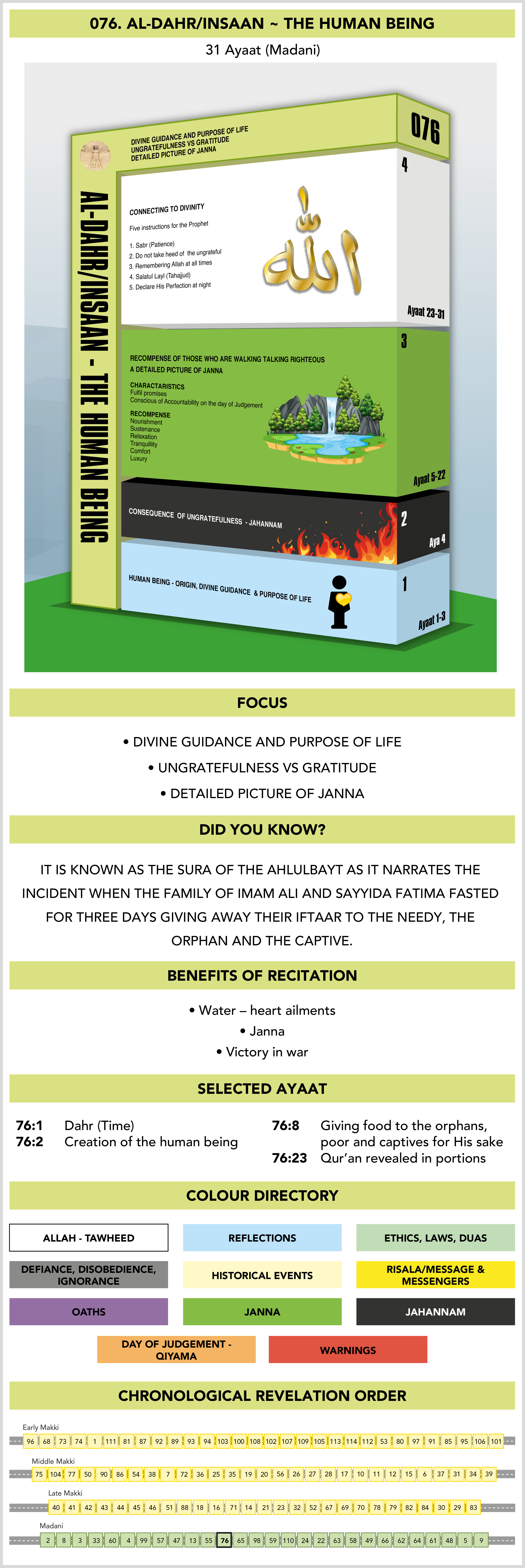The chapter takes its title from the mention of the human being in the first verse. It is also called “Hal Ataa’ (Has there not come) from its first two words. Another couple of names are Al Dahr (Endless time) and Al Abraar (the Righteous) referring to its discussions on the recompense of the walking talking righteous.
It begins with the purpose of life being gratefulness followed by the consequences of being ungrateful. Then continues in verses 5-22 to describe the recompense of the walking talking righteous with the example of the family of Imam Ali, Sayyida Fatima, Imam Hasan, Imam Husayn and Fizza. Imam Hasan and Husayn were unwell and the Prophet suggested that Imam Ali make a vow and supplicate for their recovery. The whole family vowed to fast for three days.
The family fasted the first day. Imam Ali for some barley which Fatima ground to flour and used a third to make bread. At the time of breaking the fast a needy person came to the door asking for food and they gave all they had breaking their fast with water. The following day an orphan came followed by a captive on the third day and they gave their bread and breaking their fasts with water. It is after this that these verses were revealed with Jibrail congratulating the Prophet about his family.
The chapter ends with the indication of the gradual manner of the revelation of the Qur’an, and instructions to the Prophet to be patient in the face of the opposition, not to take heed of the ungrateful, remembering Allah at every moment, and the night prayer.


